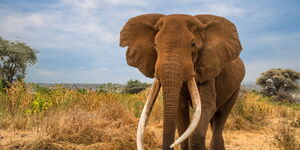The Republic of Kenya has had some interesting but obscure laws over the years, top on the list being the repealed Vagrancy Act of 1968.
The law defined a vagrant as a person without lawful employment where it explicitly categorized prostitution, fortune telling and begging for alms as unlawful means of sustenance.
A further definition explained a vagrant as someone wandering about without a permanent residence, is unemployed, and has no permanent means of providing for himself.
Having been adopted from the colonial laws, the law was repealed in 1997 after critics observed that the spirit of the law was oppressive as it was designed to keep Africans away from the Whites' areas.
Penal Code Section 144 (3), that was overturned in 2006, had been vague where it stated it was an offense "to insult the modesty of any woman or girl".
The law was specific on some accounts, however, the phrase would fit any description ranging from making rude gestures to calling a woman a harlot, to obscene catcalls.
A woman was in 2001 awarded Sh10,000 in a defamation suit where the law was used to convict the defendant of insulting her modesty by calling her a prostitute.
Another interesting law is the Breast Milk Substitutes Act of 2012 that outlaw all manner of advertising on feeding products for infants and is the reason why such advertisements cannot be seen on Kenyan TVs.
The law states that "A person shall not advertise or promote to the general public or cause to be advertised or promoted a designated or complementary food product."
It further defines designated food products as "any food or drink designed for infants, feeding bottles, teats, infant formula, breast milk fortifiers, pacifiers and cups with a spout".












